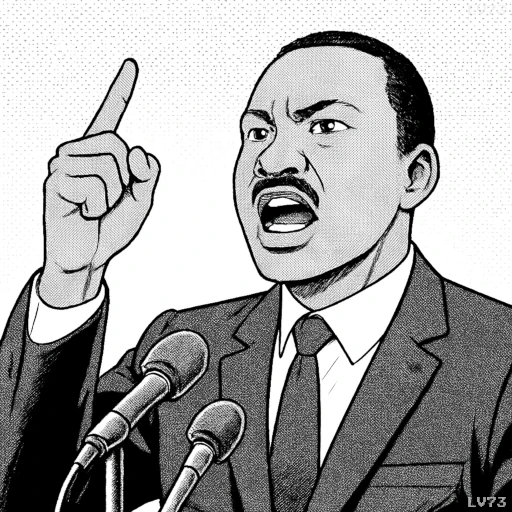“If physical death is the price that I must pay to free my white brothers and sisters from a permanent death of the spirit, then nothing can be more redemptive.”

- January 15, 1929 – April 4, 1968
- African American
- Pastor and civil rights leader
table of contents
Quote
“If physical death is the price that I must pay to free my white brothers and sisters from a permanent death of the spirit, then nothing can be more redemptive.”
Explanation
In this quote, King speaks to the selflessness and depth of his commitment to the cause of justice and unity. He suggests that he would willingly sacrifice his life if it meant liberating others from the spiritual destruction caused by hatred, prejudice, and division. King believed that racism and discrimination harmed not only the oppressed but also those who perpetuated these injustices, as such behaviors stifle compassion and dehumanize everyone involved. By calling this potential sacrifice “redemptive,” King highlights his belief in the transformative power of love and sacrifice to bring about true healing.
During the Civil Rights Movement, King and his supporters faced enormous risks, including threats to their lives. Yet King was willing to make these sacrifices, seeing his potential death as an act that could awaken society to its moral obligations. His words reveal his unwavering dedication to creating a world free from oppression, even if that meant risking everything. This quote reflects the essence of his philosophy of nonviolent resistance and unconditional love as tools for social change.
Today, King’s message resonates as a reminder of the power of self-sacrifice for the greater good. His example challenges us to consider how we might act courageously for justice, even if it comes at a personal cost. Whether in advocacy, allyship, or standing up against social injustices, King’s vision encourages us to value spiritual integrity over personal safety, believing that meaningful change often requires selfless acts. His legacy teaches us that true redemption comes when we choose compassion and unity over fear and division, leading us toward a more just and humane society.
Would you like to share your impressions or related stories about this quote in the comments section?


